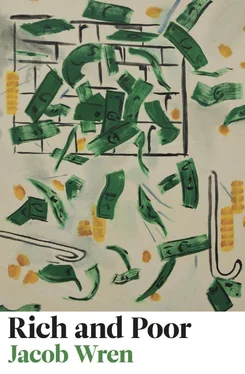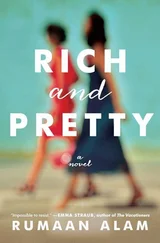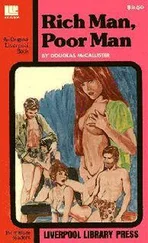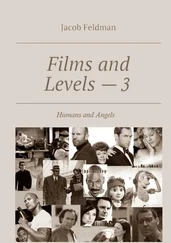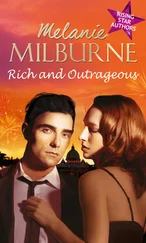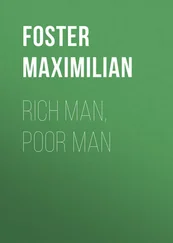I think about what my first line should be, how I should introduce myself. I already know so much about him and he knows absolutely nothing about me. But I wonder if the things I know about him are actually true, since, the more I think about it, the more I realize that so much in that book must be lies, cover-ups and exaggerations. Of course in every lie there is a grain of truth. I decide to test the waters slowly, feel him out. He must also be filled with anger but that does not mean the anger is on the surface, does not mean it can easily be reached. And then the strangeness of the situation strikes me anew. What the fuck is he doing standing out here in a parking lot? It makes no sense. Even if he is no longer working, he must have money coming out of his ears. He doesn’t need to stand around out here alone.
I reach him and ask for a cigarette. I don’t smoke and fortunately he doesn’t either. I just wanted to say something normal to get the conversation rolling. I ask if he was in there, at the meeting, and he says that he was. I ask him what he thought and he’s non-committal, doesn’t say much. I’m hoping he’ll ask me what I thought but he doesn’t. Maybe it’s good he doesn’t, because if he had I’m not quite sure what I might have said. Then, at a loss for where else to go, I tell him that I recognize him from the book, from the pictures inside the book. It takes a moment for him to realize which book I’m referring to, but when he does his expression rapidly sours. I’m about to say something critical about the book, to win him over a bit, but stop myself, not sure how critical, or even vicious, to be. Instead I decide to wait, see if he says anything more. He looks around, perhaps waiting for me to go away. I let it sit for a long time, hoping that if I stay there long enough he’ll get used to me. After a while I tell him that, though I don’t know the details, I’m pretty sure he got a raw deal, and I’ve certainly gotten a raw deal once or twice in my life so I know how much it sucks. Again a long silence. I think he might say nothing else for as long as I stand there, but nonetheless I wait.
After a while he looks at me and starts to talk. He says that the book was unfair, it was unfair how it portrayed him and, if the settlement hadn’t forced him to remain silent, he would write his own book to set the record straight. He now regrets even agreeing to the settlement, but at the time it felt like he had no choice. Still, every time he thinks back to how he had been paid off, it almost kills him. For a few million he must live in disgrace for the rest of his life, unable to speak honestly about the things that have mattered most to him. He tells me he can’t believe how bitter he has become, how sour, that all his life he had been one of the most fun, one of the happiest, one of the most joyous people anyone knew, and now he was like a crumpled piece of steel covered in rust. The way he describes himself, a ‘crumpled piece of steel covered in rust,’ I don’t think I’ll ever forget those precise words or his voice as he said them. This was a man who, back when he had a job, had done so many corrupt and awful things, ruined so many lives, stockpiled so much cash and turned every dirty trick to get it. There was no reason for me to feel sympathetic towards him. But I was glad I felt sympathy because I needed his help, and it’s much easier to ask for help when some sympathy is present.
1.
We had a young intern in one of our departments. Turns out she was an aspiring poet. One day I’m briefly introduced to her and she manages to hand me a sheaf of poems. Wants to know what I think. Now, at the time, I didn’t know poetry from a liability report, but I take the poems home and read them to the best of my ability. I like them well enough, and send a short note telling her. A few years later she is already a successful poet, if such a thing can be said to exist. She wins a prestigious award, mentioning me in her acceptance speech, thanking me for the support I gave back when she was a struggling intern. Suddenly I’m getting letters from every poet in the country and they all want money. We have to hire another secretary just to go through the requests. All I did was send a note saying I liked her work — it took me less than a minute to write — but the entire world now thinks I gave her financial support, might soon do the same for them. And that is how our poetry foundation came into being.
As someone who spends the better part of his life figuring out how to make as much money as possible, I believe it is beneficial for us to be closely associated with a pursuit at which it is entirely impossible to make a red cent. It costs us relatively little, since poets don’t need much to be happy, and garners small amounts of precisely the right kind of publicity. To anyone who says that we are only in this for the money, we can always reply that, no, we are also in it for the poetry. I no longer have much to do with the foundation. There is a board that every year selects three qualified judges who read through the applications and patiently dole out the awards. But I am sent a pile of books every year, books in which the foundation is thanked for its support, and I do read each of them carefully. Much can be learned from poetry. When it is boring it is boring in an absolute way, and to write poetry that is not boring is a kind of absolute challenge, analogous to the challenge I take upon myself to change things up whenever I begin to find my position dull. Poetry, like business, is full of tricks and clichés. And one quickly learns just how much energy it takes to write a poem that is genuinely surprising.
I also attend the annual awards ceremony and meet each of the poets in person. I believe there is a certain irony in the fact that they are considered colourful, fascinating artists, while we are considered bland, faceless vultures. From a distance, if one doesn’t look too closely at our respective attires, it would be difficult to tell who among us is a corporate suit and who a poet. It is rare that a poet says or does anything interesting or outrageous during one of these functions. Usually the function itself is as dull as a board meeting (or at least as dull as a board meeting at which I am not personally in charge). But there was one notable exception.
Along with the regular awards, the foundation gives a lifetime achievement award to an older poet. In the past, this older poet would give a brief speech at the ceremony, though for obvious reasons, reasons you will soon see, we no longer allow this. Because one year the award went to a real radical, and for his speech he thoroughly raked me over the coals. He was good at it too, with precise, clear statistics for every evil thing he claimed we had done, but also jokes, personal jokes at my expense and genuinely accurate jokes about the rapacious nature of our business practices. It was one of the few years I wasn’t bored. He even finished by dramatically tearing up our cheque, saying that dirty money and poetry didn’t belong in the same room. And this was one of the rare moments you could tell the poets and vultures apart, since most of the poets applauded, while only a few of the suits had the guts. (Perhaps more of our employees would have done so if I had not been present.) His poetry was good too. I still have his books by the side of my bed. Such a clear-eyed view of the disaster in which we live, and yet every page makes room for some humour or joy.
There was some negative press but it could have been worse. A poetry prize is pretty minor as far as news stories go. And in the weeks that followed, when asked, I had my reply well scripted, explained that giving the award to someone so negative was a clear display of our openness, our willingness to be self-critical. We weren’t perfect but we clearly weren’t close-minded. It wasn’t until two weeks later that I had another idea. I approached the sweetest of the three judges — a bright young woman — and explained to her that despite his performance at the ceremony, which I then admitted how much I had enjoyed, we wanted our fiercest critic to have the money anyway. I asked her, off the record, if she’d be willing to approach him, to find out if he would accept the cash in secret, and that if he did so we promised never to tell anyone. I don’t believe there is any shame in the fact that he graciously accepted, as everyone knows the financial lot of poets is certainly not glorious, and he had never managed to sustain a teaching position. Even though we never had occasion to use it, I always felt more comfortable knowing that we had something on him; he had taken a payoff from the mouth of the beast. Much like those of us in business, he too behaved one way in public and a slightly different way behind the privacy of closed doors.
Читать дальше
